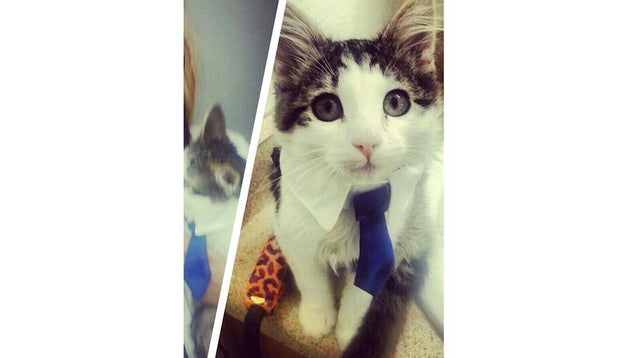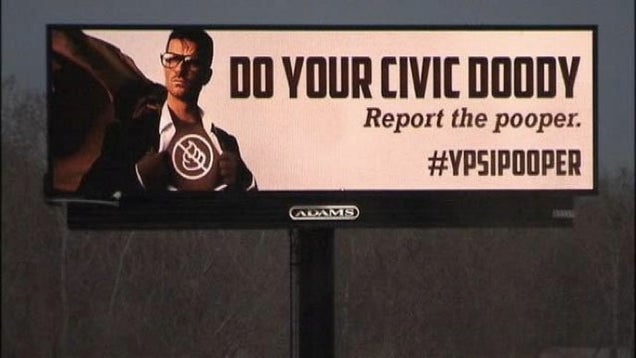![Tribeca: A Gorgeous Portrait of Puerto Rico's Trans and Drag Community]()
Going into Dan Sickles and Antonio Santini's debut feature Mala Mala, I wondered if I was about to watch 2014's answer to Jennie Livingston's controversial classic Paris Is Burning.
It quickly became clear that Mala Mala is a different animal—it's less outrageous, more focused on the beauty of its subjects, and nearly abstract (at least at first) as it profiles about a dozen residents of Puerto Rico, including trans women, a trans man, and drag queens. Some are entertainers, some are sex workers, some blur several lines, as the movie itself does. The plot of Mala Mala gels as its subjects come together during its second half to lobby for the passage of the anti-discrimination Bill 238.
For better or worse, Mala Mala has fewer laughs than Paris Is Burning—even bel hooks might approve of its more sensitive approach to its subjects. The doc is playing this year's Tribeca Film Festival. Last week, I met with Sickles and Santini, who are both in their 20's, to discuss their film. Below is an edited and condensed transcript of our chat.
Gawker: Can you describe the conception of the movie and what inspired it?
Sickles: I guess three-and-a-half years ago, Antonio and I went to Austin, Texas for a film festival and while we were there, we went to a bar and this drag show happened, and we ended up meeting this drag queen whose name was Maggie McMuffins. She lost the competition but we loved her. We went up to her after the show and we told her she was amazing. She invited us to her house in Northern Austin, and Antonio and I ended up spending the entire next day with her. We had a super, super candid conversation about gender and identity and her transition. She was three months into transitioning, but at that time still married to her wife and they had a daughter together who was 9-years-old. The story unfolded in front of us, and in the car ride back, Antonio and I decided to keep pursuing these themes of gender, identity, and sexuality. We thought of four locations for a feature length film dedicated to the idea, and Puerto Rico struck us as the most fascinating.
Why does Mala Mala explore trans people and drag queens together as a group? Knowing what I know about the internet, that seems like something that will piss people off.
Sickles: I think that's [potentially] contentious in the same way that any identifier is contentious. If we were to make a movie about what it means to be American, there would be people who would feel excluded or who feel like some groups shouldn't be included in that conversation. As with any identifier, we have these really, really complex ideas of what they are running through them. In our research, Sylvia Rivera was someone that we found and were super attracted to. She's a Puerto Rican drag queen who was alive during the '60s, '70s, and '80s. She actually claims to be the first one to throw a beer bottle at Stonewall. She went on to create S.T.A.R. (Street Transvestite Action Revolutionaries) with Marsha P. Johnson. There was a split between the gay community and the trans community. Politically, they gays decided that they were working for different things, and because they were more assimilated, they had a higher chance of achieving them. They left a lot of their trans brothers and sisters in the dust. Silvia fought for drag queens to be included as a part of the transgender community. The term's kind of developed to be a kind of catch-all phrase for non-normative gender identity and expression, but that really didn't come about till '92. So the way we're employing it is fairly new. We figured we would take the most inclusive approach to avoid essentialism and exclusivity. If there's anyone who thinks of their gender as anything that's already been set, they can be in our movie.
Santini: The process for making it was really organic, in that we first met April [Carrión of RuPaul's Drag Race] who is a drag queen. We were aware that we were on an island that the people we were talking to were invisible. We knew we had to demystify some concepts that people don't understand. Even though there was stuff we wanted to get into that was even deeper, we knew we had to include everyone and then explain how they're different. We want the movie to serve as an introduction/conversation starter.
What really unified the subjects of the documentary to me was the notion of passability, at having to work with what you were given to present what you are.
Sickles: I feel like that theme is something that's universal to everyone. There are certain things we all aspire to be, whether it's a dad, a CEO, skinnier. We have all these terms at our disposal that we work to attach to ourselves, that we aspire to. I think the film is universal in that sense. The people in the film work with it on the frequency of gender. Maybe not all of us have that same struggle. Maybe not all of us work on ourselves and our identity in that way.
Santini: At the beginning, we filmed the drag queens and [it got to a point where] we were like, "We have enough of this. What do we care about? What's actually important here?" I think that's why we ended up filming what we filmed. We had to explain to ourselves and the people we were going to make work for whatever budget that we had that this is what spoke to everyone.
The film is beautiful. You both seem invested in the concept of aesthetic beauty, much like your subjects.
Sickles: For sure. I think for us it was more about supporting their dignity, especially with Sandy, shooting her work on the street.
Santini: We knew that sex workers have been shot a million times, and it's always sensationalist. Those were their concerns, too. They were scared of what we were going to do with what they were offering. It's very easy for them to tell you to go away, and then you'd have to leave. For you to shoot there and be with them, you have to be welcome. As we got to know them, we got to respect them. They became our friends. We wanted to make sure the imagery said that too. We knew we couldn't shoot Sandy all sweaty after she just gave a blow job. That wasn't what was important. What was important was what we saw: She's beautiful and inspiring.
Sickles: She's a rock star. She runs her shit. She has her life together. She has a boyfriend. She has a home. She has a great group of friends. She may be participating in this work that, from the outside, is looked at as something less than, but she's getting by, and she's doing it better than a lot of people that I know who have BFAs and trust funds.
Were you particularly worried about exploitation?
Sickles: That's such a buzzword in this line of work. I know that there are certain shots in the film that people are going to look at us taking advantage of the situation, like Ivana standing in front of the waterfall without any clothing. We went to where Ivana wanted to take us, so she took us to the National Rainforest. We got in the water with her, she had a bathing suit on, we thought we were going to shoot her in a bathing suit and she was like, "I want to take all of this off." That's how that moment happened.
Santini: That's what she wanted, because she is sexual. She's not this cartoon character trying to be a perfect girl. That's who she is, and she has no reason to pretend otherwise.
Sickles: Ivana says it in the very beginning of the doc: "We worked hard for these bodies, so we want to show them off."
Did you find there were any advantages to being outsiders coming in to document this community?
Sickles: Yes, it was an advantage and it was something we were well aware of. For myself, I'm not Puerto Rican. I grew up outside of Philadelphia. My Spanish is pretty terrible. I'm fully aware of the fact that I move through society in probably and easier way than most minorities do...it's such a difficult conversation to have, because it's like, how close is is permissible to talk about it? Through filming, I've started to look at myself as a multi-layered identity. There are feminine aspects of myself, and there are physical aspects of myself that I think of as feminine, too. It doesn't have to be: Are you trans or not? You can kind of be trans while still conforming to the sex you're prescribed at birth.
Santini: I think something else that helped is Dan's American and I'm Puerto Rican, and constantly having two of us was important. First we'd have to access them, which was: How do you relate to them? Soraya was in her hair salon working and like, "Why are these people coming in with cameras?" One connection was: What's our nationality? And then it's like: Are you part of the community? But then it was the question where it was like: "Why are you filming me? Why does my story matter?" And that's where the outside perspective came in that was really important. It was like: Your story isn't "important" locally, because no one cares about you here. But it actually is important universally. And when they saw that, that's when they were like, "Ohhhh... OK, we'll work with you here."
Sickles: If 20 years from now, people are to look at Mala Mala and say, "That's an archaic, transphobic discussion," I think that in a lot of ways we will have succeeded. Kind of like how we talk about Paris Is Burning now, which is that it's of its time. I think that if we're to look at it now with all the information that we have, it is a little reductive, maybe. But I think that in the time and place it's created, anything to advance the discussion about gender, about bodily autonomy, about freedom of choice is wonderful and necessary.


























